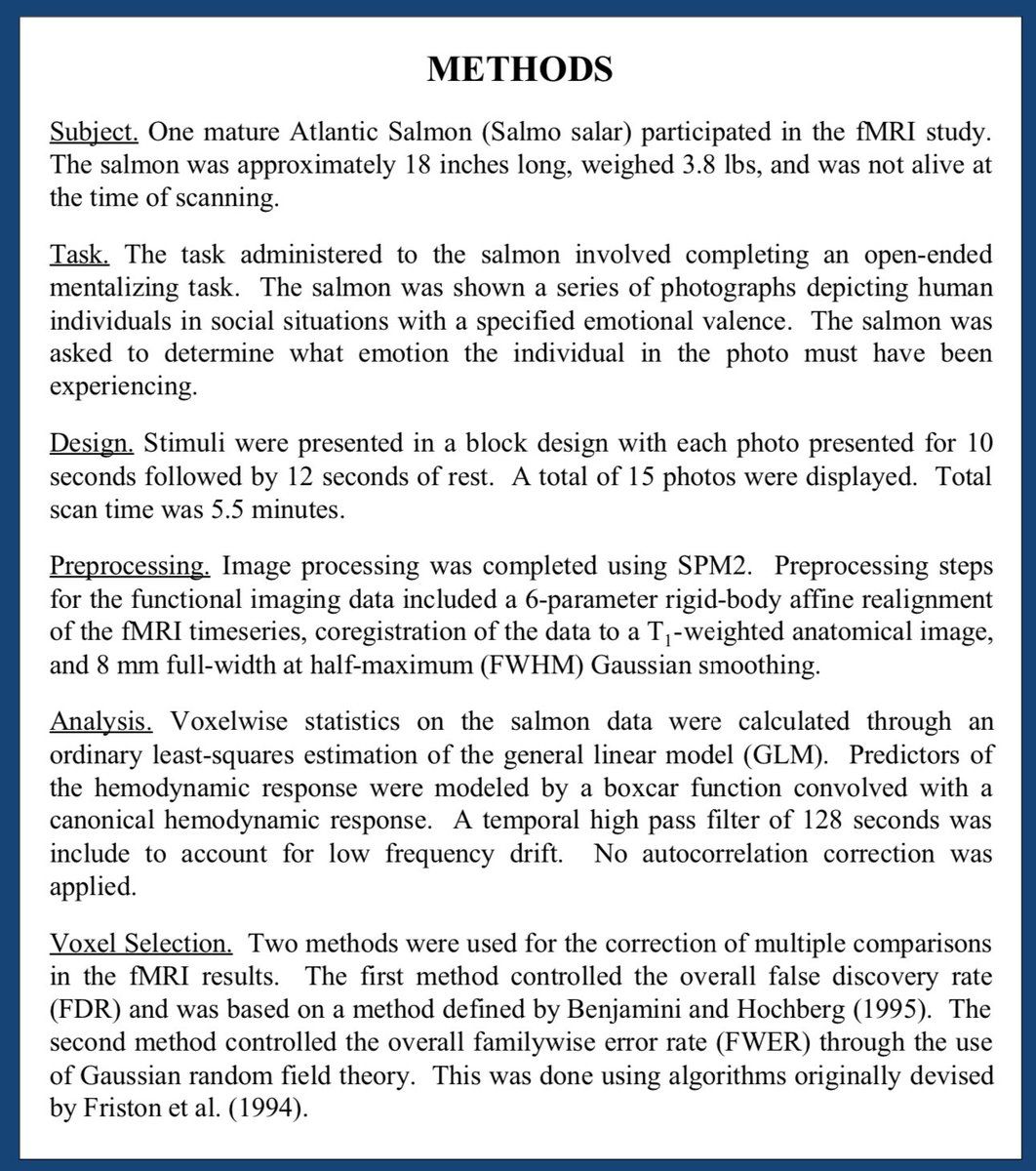Popular Tweets
A list of popular tweets by retweets and favorites.
-
1) In 2008 a salmon (yes the fish) was put through an MRI scanner. The salmon was shown a series of photographs of humans in social situations, and asked to determine the emotion of the person in the photo (yes, really).
-
The captcha and the 'Contact Us' button are perfect 😂😭 #digitalexperience
-
"What does the research say?" When people repeatedly ask this it seems they are asking "What are the facts?". But shouldn't they also ask: * Who paid for the research? * Who performed the research? * Who was part of the research? * Has it been replicated? 🤔
-
…in reply to @axbom
10) Reminder: when we see images with areas of the brain in bright colors, that’s not necessarily telling us that one part of the brain is active and the rest isn’t. They’re probability maps. They show the likelihood of activity happening in a given area, not proof of activity.
-
…in reply to @axbom
9) When the poster for this study was presented, between 25-40% of studies on fMRI being published were NOT using corrected comparisons. But by the time these authors won the Ignobel Prize, that number dropped to 10%. That salmon is a hero.
-
…in reply to @axbom
12) Here's more info on when they won the IgNobel Prize: blogs.scientificamerican.com/scicurious-brain/ignobel-prize-in-neuroscience-the-dead-salmon-study/ And please also read this interview with two of the authors: it's brilliant: boingboing.net/2012/10/02/what-a-dead-fish-can-teach-you.html Craig Bennet is also on Twitter: prefrontal
-
…in reply to @axbom
13) Moral of the story: don't go fishing unless you' re prepared to not catch any fish. prefrontal.org/files/posters/Bennett-Salmon-2009.pdf
-
#Stockholm is not in a state of panic. I translated this excellent post by kjellhaglund
-
A dangerous fallacy is that killer robots will take the appearance of monstrous, mechanical machines. Instead, killer robots have (among many other disguises) taken the appearance of web forms automatically determining if people are eligible for financial assistance.
-
…in reply to @axbom
5) As the story goes, the lead author of this study, Dr. Craig Bennett had headed into the store first thing in the morning and proclaimed: "I need a full length Atlantic Salmon. For science."
-
…in reply to @axbom
7) If you do a lot of tests, at least some of them will come out positive, even if they are not real. These are called false positives, and they are something you really want to watch out for.
-
…in reply to @axbom
8) To be clear, the salmon study doesn't show that fMRI is bogus. It shows the huge importance of correcting your stats. There are good and bad ways of doing all science.
-
…in reply to @axbom
11) Colorful brain images have powerful persuasive powers. As does most stats. It's just generally good advice to understand what you're looking at.
-
…in reply to @axbom
4) Here's another fact about that salmon though: it was dead and frozen at the time of the scan. The experiment was really just a test of the machine. After testing with a pumpkin and a Cornish game hen, they settled on the fish, which had several types of tissue.





